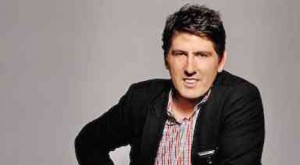If two heads are better than one, then perhaps combining the ideas and insights of thousands or even millions will be the best way to make a change.
This in a nutshell is the wisdom behind the growing phenomenon of crowdsourcing, or the harnessing of the wisdom of the crowd to come up with solutions to social problems as well as responses to business challenges.
According to Epirot Ludvik Nejak, founder of Ludvik + Partners, reputedly one of New York’s most popular virtual ad agencies built on a 100 percent crowdsourcing model, reaching out to the people and getting them involved in the formulation of strategies pays dividends and is promising to be an ideal method to rapidly scale up a business.
“Crowdsourcing allows entrepreneurs to come up with new business models founded on the principles of open data and transparency and geared towards innovation and “business unusual,’” says Nejak, who is considered a pioneer in using the crowdsourcing method to push consumer advertising and digital marketing.
“Crowdsourcing is all about sharing economy, collaborative consumption, co-creation, collaboration, crowdfunding and open innovation. Technologies are fueling new business models, and companies and enterprises can engage with their customers on a completely new level,” says the Advertising and Marketing graduate of the New York-based Fashion Institute of Technology.
“Crowdsourcing also gives executives, entrepreneurs and financiers a platform for innovation across many industries. It brings to the fore the needs and desires of leadership teams to bring about meaningful change in their organizations and understand new emerging business paradigms, fostering a new generation of leaders in innovation and creativity,” Nejak tells BusinessFriday.
Nejak enumerates examples of how crowdsourcing helped shape public policy.
Iceland, Europe’s most sparsely populated state, held a referendum on what is said to be the world’s first “crowdsourced constitution, drawing on suggestions from Facebook and Twitter about how to run the country. Around half of Iceland’s 235,000-strong electorate participated. Citizens also backed specific measures that included greater national control over the island’s natural resources.
In Finland, technology is about to make democracy significantly more direct. Last year, the Finnish government allowed a “citizen’s initiative,” through which registered voters can come up with new laws. The nonprofit organization has been collecting signatures for various proposals, and the government has approved the electronic ID mechanism that underpins the digital version of the platform.
In New York City, Mayor Michael Bloomberg had to cancel the New York City Marathon, which has run every year since 1970, including in 2001, in the wake of the havoc and distress caused by superstorm Sandy. Bloomberg bowed to public displeasure over the fact that critical resources could be diverted to the marathon when thousands of residents were struggling.
Nejak says that in the Philippines, the 1986 People Power that toppled the Marcos dictatorship can be considered an early form of crowdsourcing.
“Crowdsourcing brings to bear on government the demands of various sectors or groups comprising ordinary citizens so that change can happen, particularly in places where politicians tend to wield vast power and monopolize policy decisions,” he says.
“Crowdsourcing in the political and social spheres is, at its core, democracy in action. It encourages people to become active participants in matters that affect their daily lives. This could take the form of signing petitions for the passage of a particular piece of legislation, demanding the recall of corrupt elective officials, or asking immediate official action on an environmental issue,” he adds.
It was because of the growing phenomenon of crowdsourcing that Nejak organized the Crowdsourcing Week in Singapore on June 3-7. It was the first weeklong conference focused on crowdsourcing, crowdfunding and open innovation.
The event, he says, brought together 300 delegates from 23 countries for over 57 talks, panels and networking events. They came from North America, Europe, Latin America and Africa.
“The conference provided a venue conducive to creating new connections. 95.2 percent of attendees surveyed found new contacts and opportunities for future collaboration. Startups were given the opportunity to learn about the unlimited potential of crowd finance while networking with investors and industry experts and sharing with other innovators. Crowdsourcing Week aims to educate today’s leaders and managers with information and skills for better performance on this new digital economy,” says Nejak.


